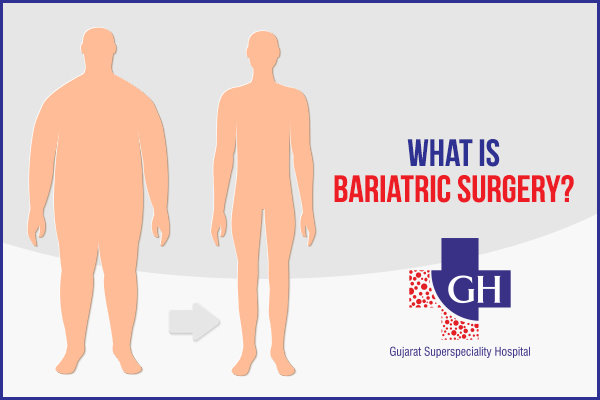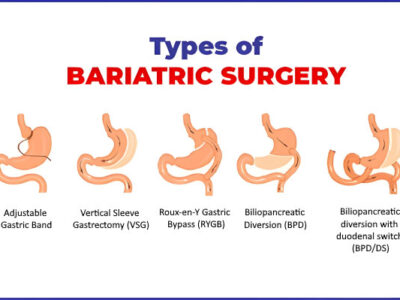Obesity and its consequences
One of the biggest disadvantages of our modern times is the sedentary and monotonous lifestyle we lead. This, in turn, leads to what is now termed as “lifestyle diseases” like obesity, which if not treated, can be life-threatening. When the bodyweight touches extremely high levels then it is known as Morbid obesity and action needs to be taken immediately if the person wants to return to a normal life.
Obesity can have many harmful effects like contracting life-threatening diseases like liver and kidney disorders, heart diseases, respiratory attacks, sleep apnoea and different forms of cancers. In light of such developments, it is very important that obese people take immediate steps to reduce their weight. One such successful method is bariatric surgery.
What is Bariatric Surgery?
With the advancements made in modern medicine, it has become possible to remove excess body weight through surgical procedures.
Bariatric surgery involves a series of procedures to get rid of all the excess weight from obese people. The surgery is not that easy and cannot be conducted on any and everyone. Only people who meet certain distinct parameters are allowed to undertake the surgery.
The surgery takes place by removing certain areas of the stomach or by resenting the small intestines into a tiny stomach pouch. This process is medically known as gastric bypass surgery.
Main types of bariatric surgery
While there are many types of bariatric surgery, the most common ones are Sleeve Gastrectomy and Gastric Bypass Roux-En-Y.
Under the vertical Sleeve Gastrectomy, almost 2/3rd of the stomach is tightened around its greater curvature, leaving behind the remaining 1/3rd of the stomach.
In the second type of Gastric Bypass Roux-En-Y surgery, a small pouch is made in the upper stomach, which controls the concerned person’s food intake. With the help of the pouch, there comes a delay in the mixing of food with the stomach’s digestive juices and as a result, all the calories are not absorbed.
After undergoing this form of surgery, almost all patients lose around 80% of their obesity with a time period of a year.
Bariatric surgery requirements
Not everyone can opt for bariatric surgery. There are certain requirements, which must be met with an obese person to go on the operating table. These include:
1) A Body Mass Index (BMI) of more than 40 or weighing more than 100 pounds.
2) A BMI of more than 35 and suffering from one or more obesity-related diseases like Type 2 diabetes, sleep apnoea, fatty liver, and heart disease.
3) Cannot lose weight through conventional weight loss methods like exercise and diet.
Recovery from bariatric surgery
Once the bariatric surgery is done, it is very important to have a proper recovery process. Patients need to remain in the hospital for at least five days after the surgery to ensure the recovery process is smooth and there are no complications following the surgery.
The recovery from bariatric surgery will be slow and painful as it is major surgery. The hospital staff will be always around to watch the patient’s condition. He/she will be required to perform deep breathing, coughing, leg exercises, and normal walking to get the body into motion. All this will speed up the recovery process.
In the weeks following the surgery, the concerned person will experience different recovery symptoms like surgical pain, fatigue, nausea, loose motion, emotional breakdowns. All these symptoms are natural and with proper medical and psychological support, the person can recover in no time.
Bariatric surgery at Gujarat Superspeciality Hospital
In Vadodara, Gujarat Superspeciality Hospital is a good choice if you are looking for bariatric surgery options. The hospital has a special ward dedicated to obese patients with furniture able to hold weights of nearly 350 kg.
A super specialized team of doctors along with trained nurses and technicians work around-the-clock to ensure that the patient has a successful bariatric surgery and a smooth recovery process.
Read more : Types of Bariatric Surgery

